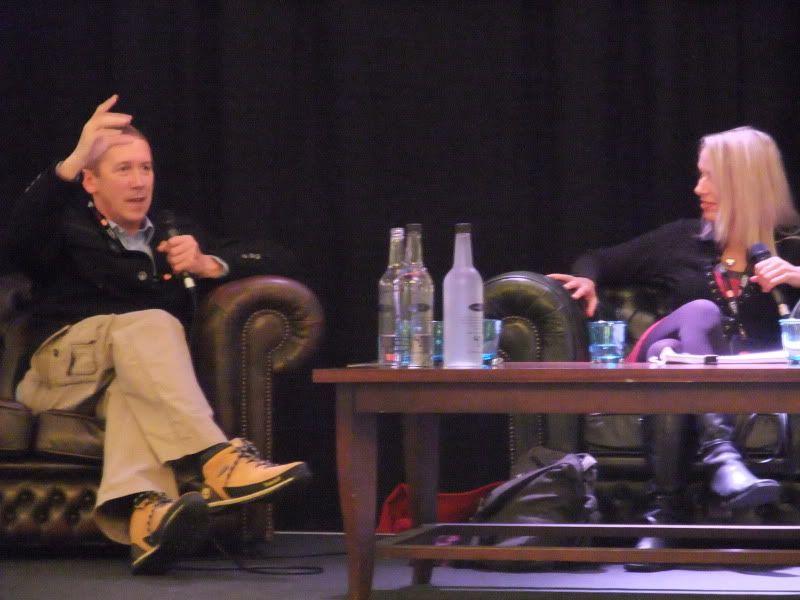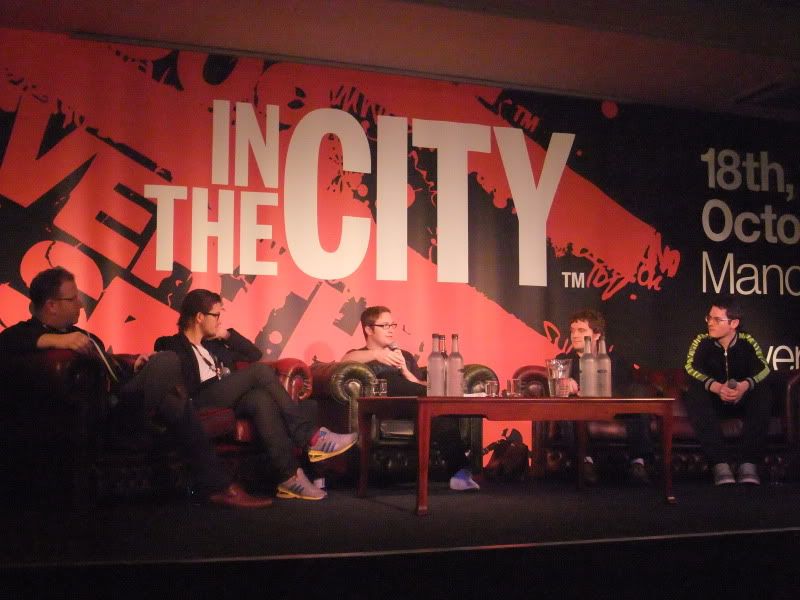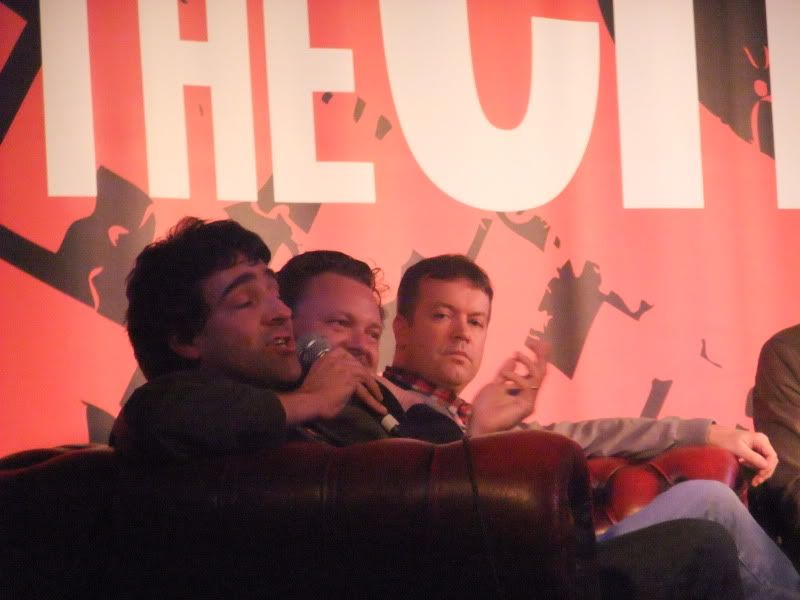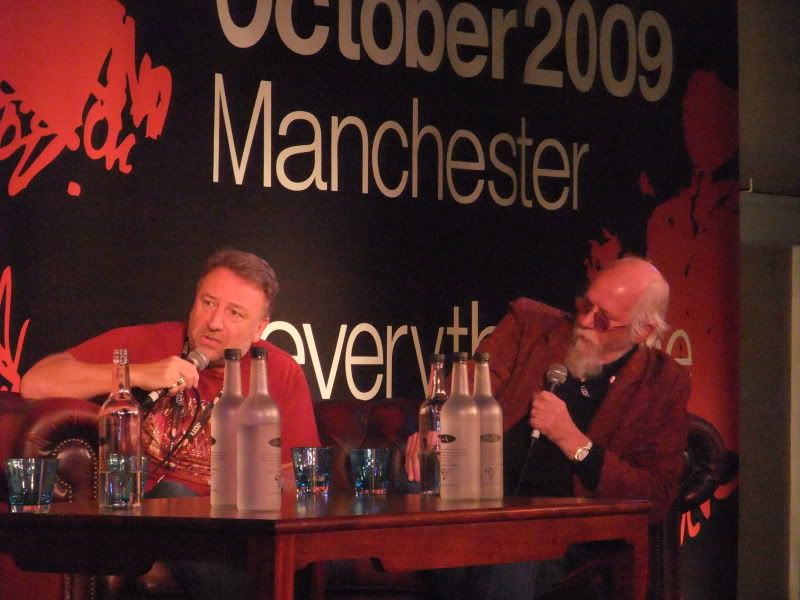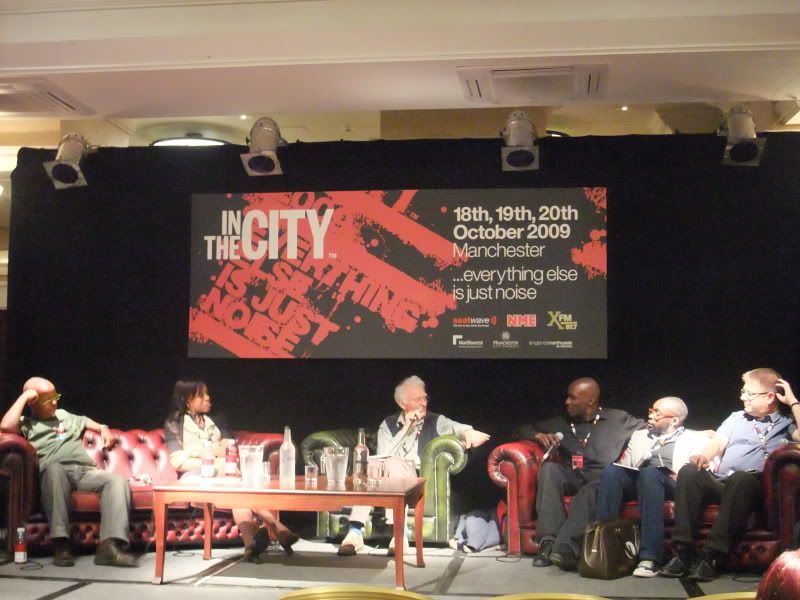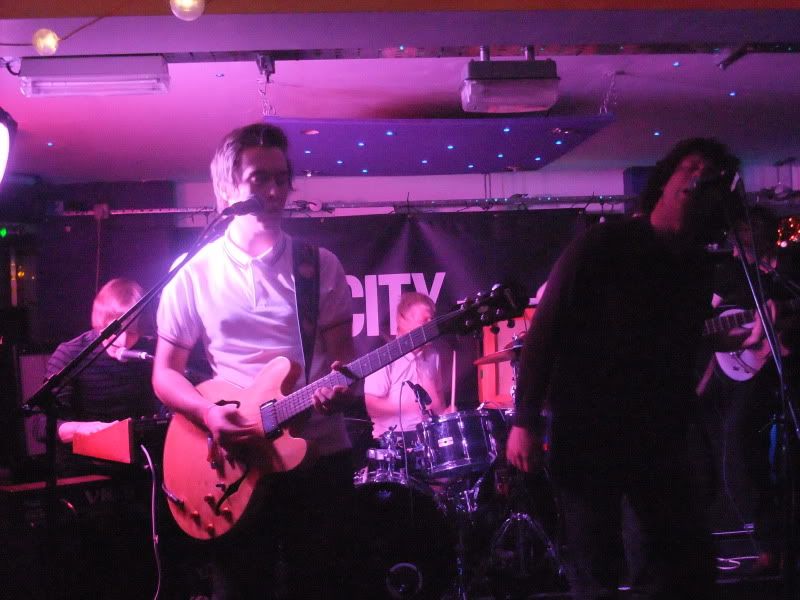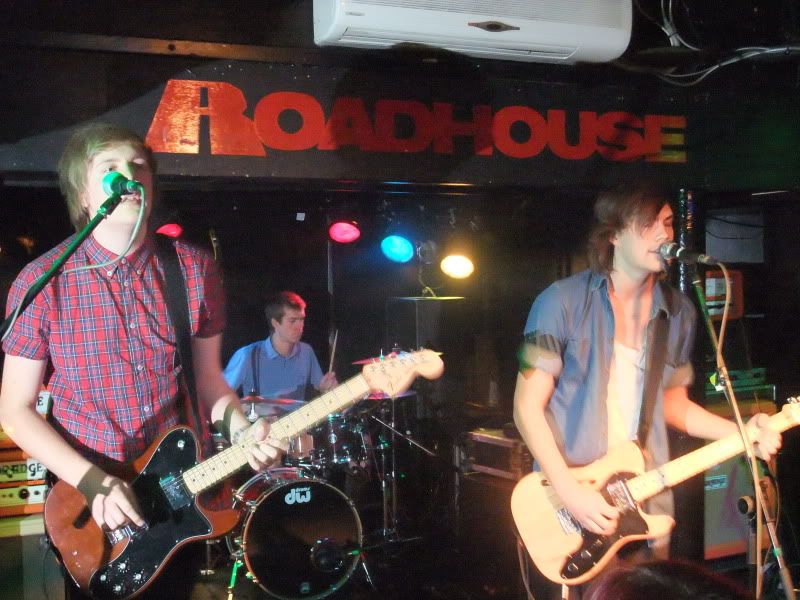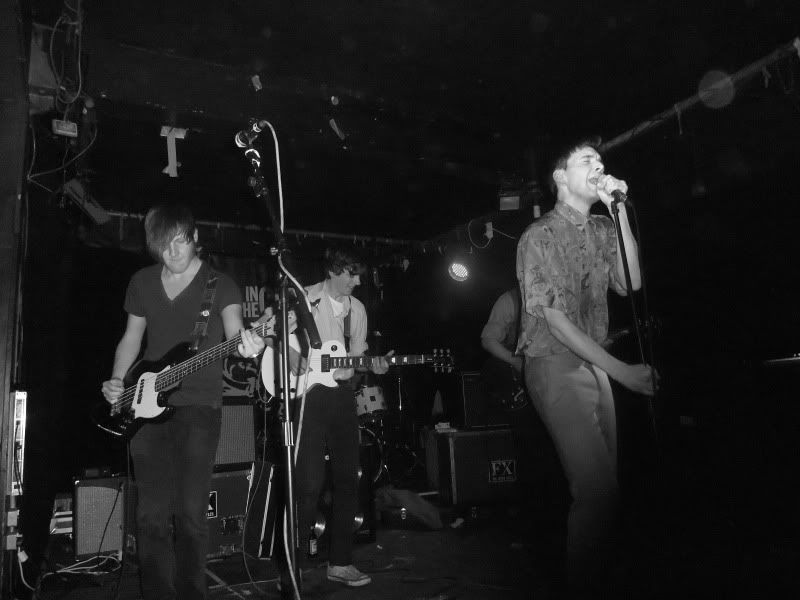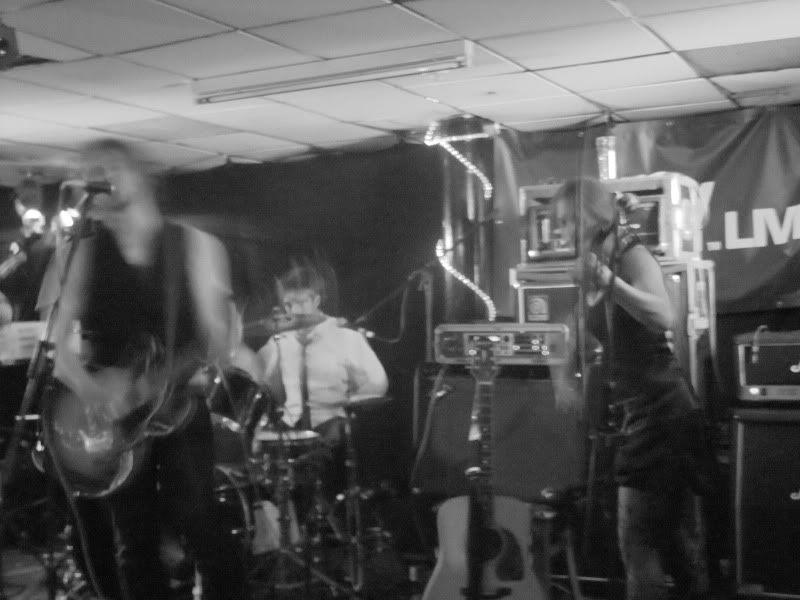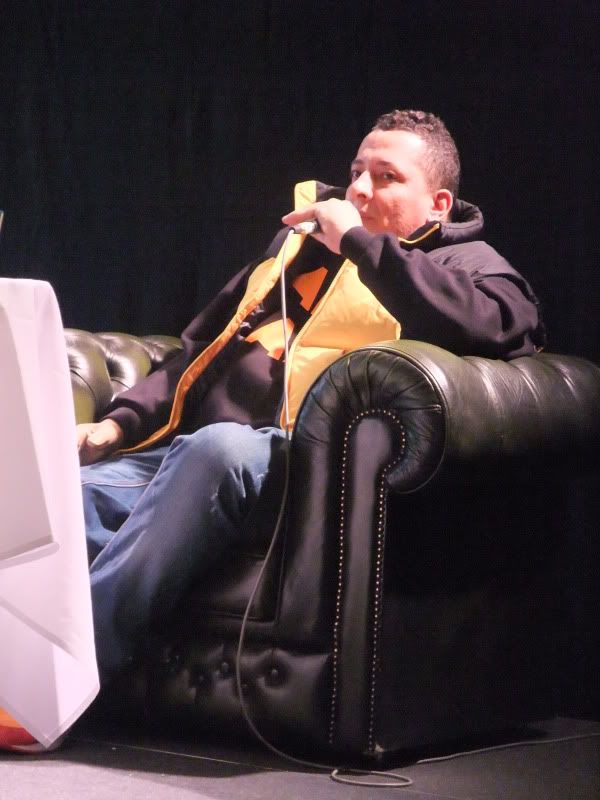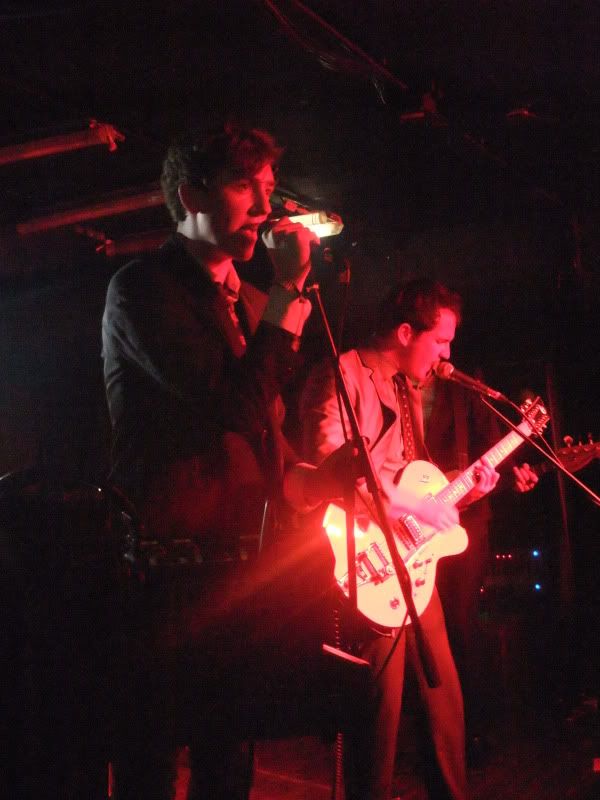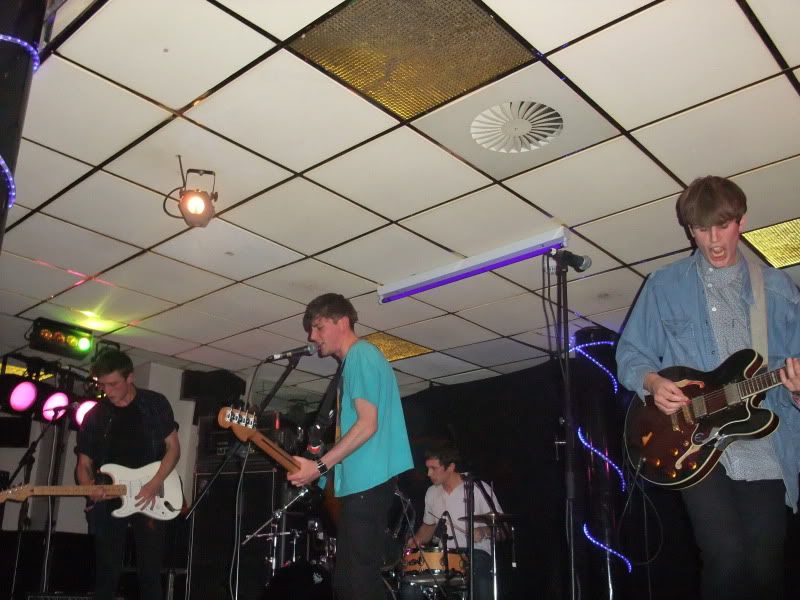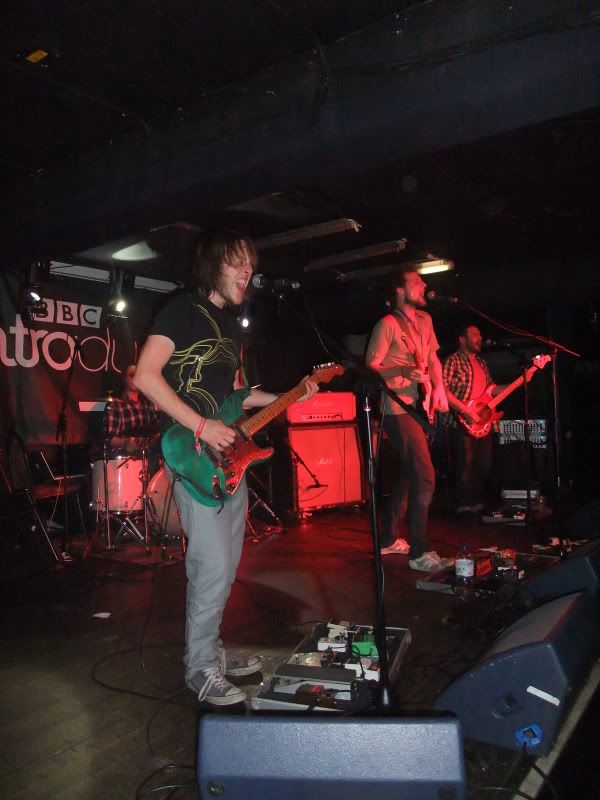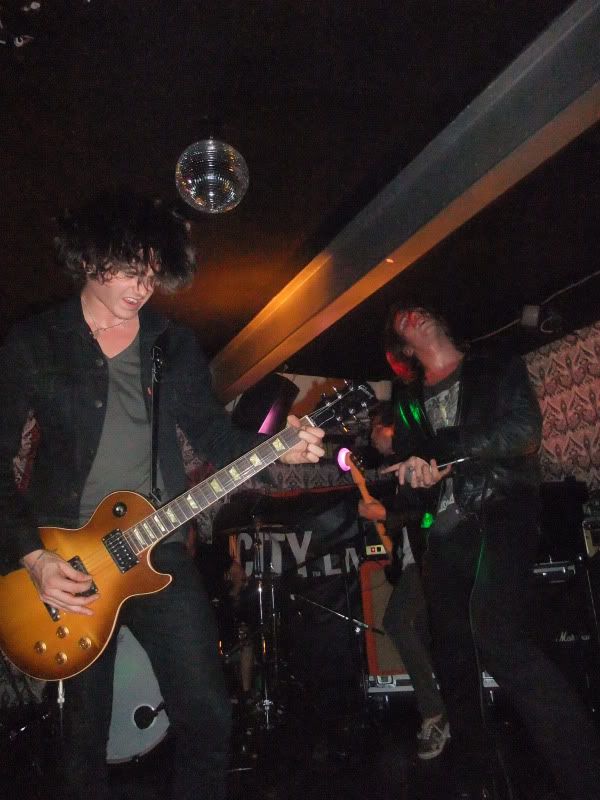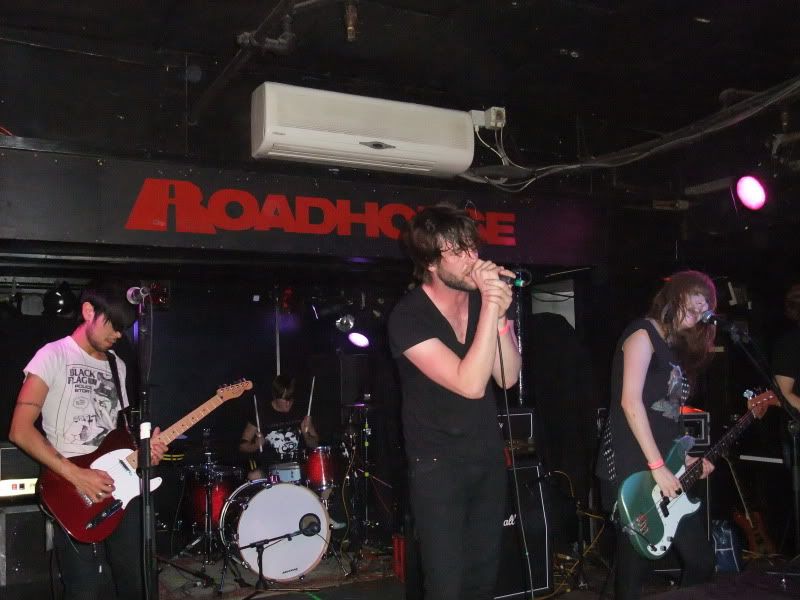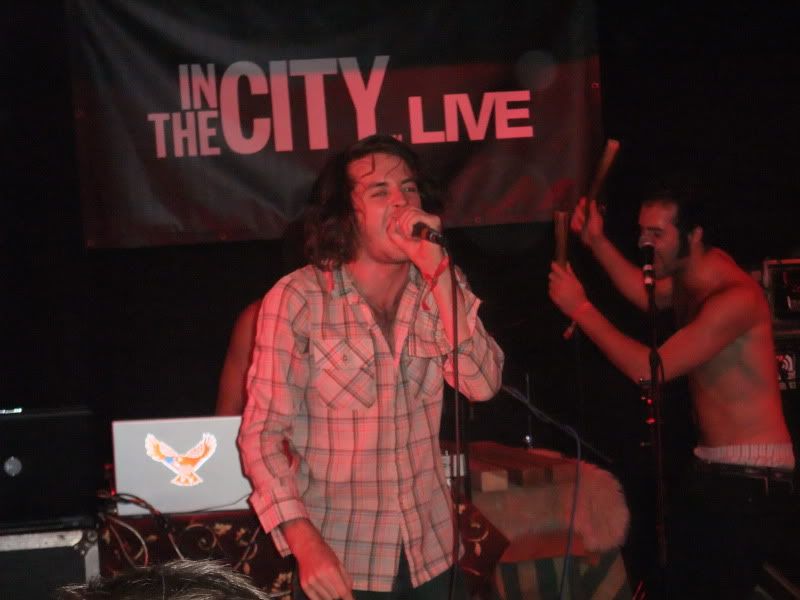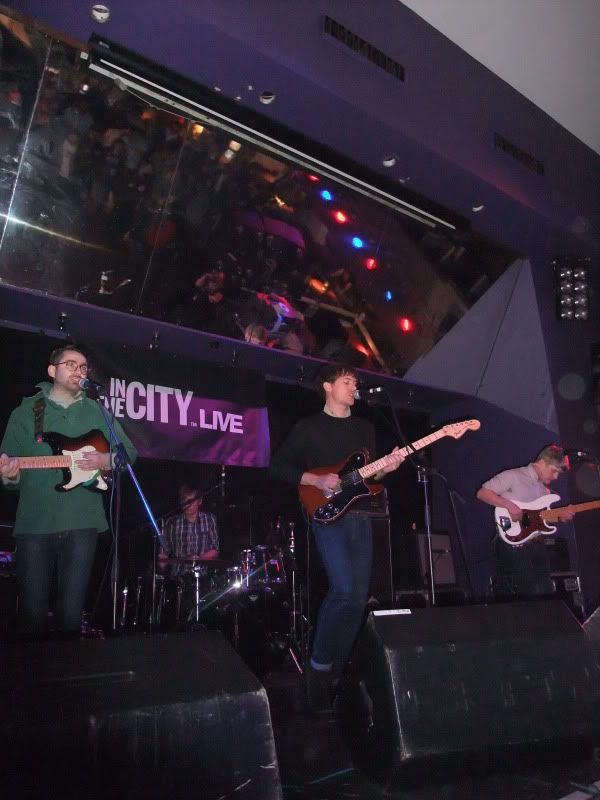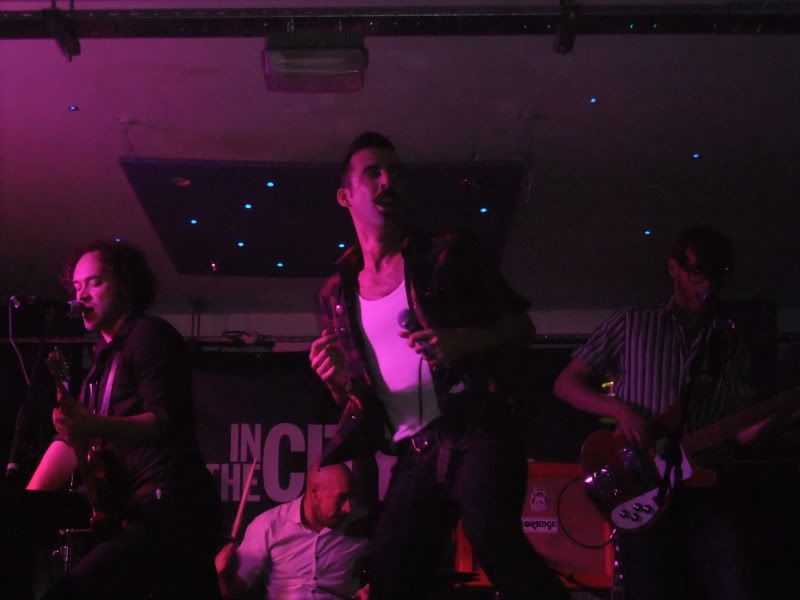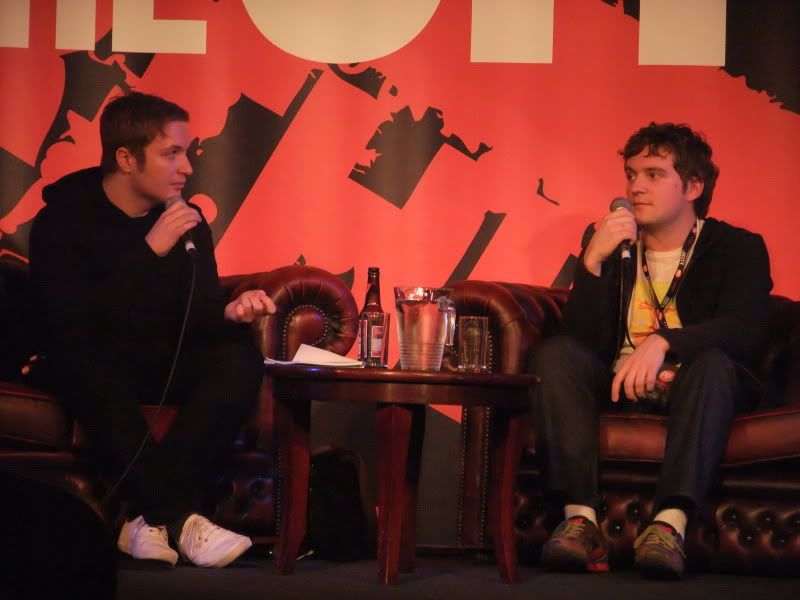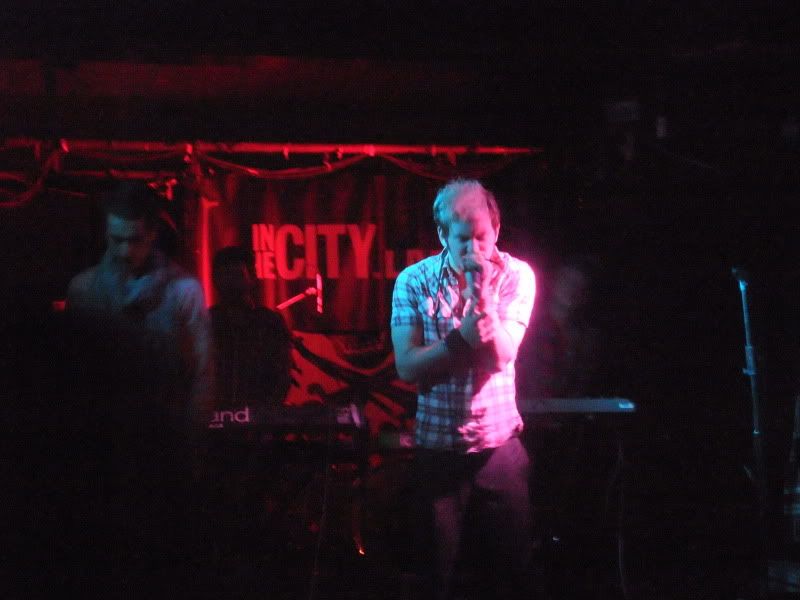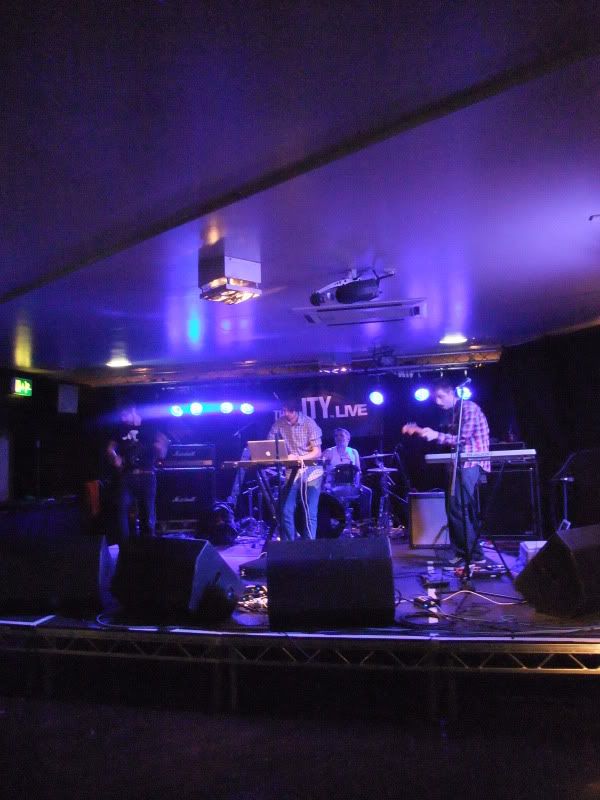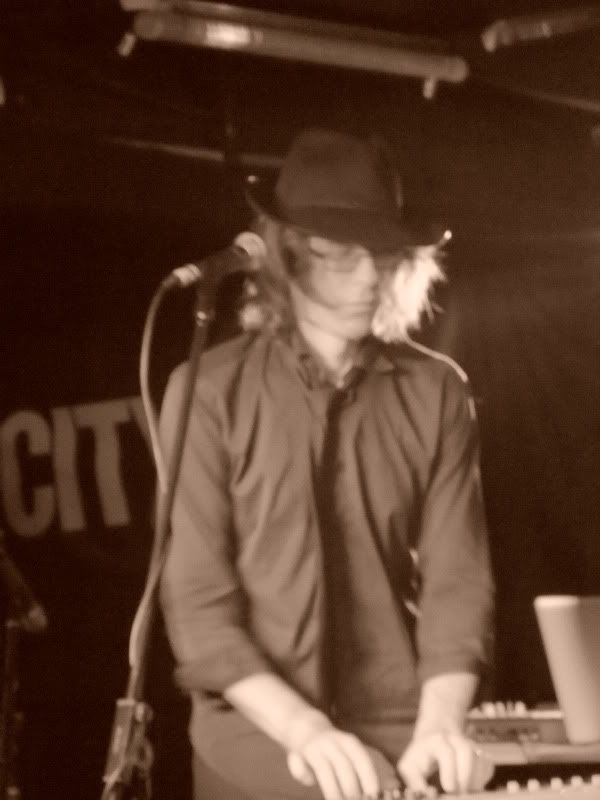For over thirty years crowds have rocked to the perfect timing and dynamic dexterity of the DJ. From local kids wowing neighbourhood block parties with their bedroom experiments to gawdy, Hawaiian-shirted, mobile DJs juggling taxi arrival announcements with requests for the latest Shalamar `joint`, the DJ has successfully (for the most part anyway) kept dancefloors red hot while unleashing an array of quickhand-derived `crabs`, `flares` and `chirps` - always thinking a full three records ahead in his or her mind. Sounds fun doesn`t it?
Now, after some years in development, the latest installment to Activision`s `Hero` series allows armchair gamers to step into a virtual DJ booth as one of the world`s most recognised turntablists. Already released this Monday in the USA and on Friday, 30th October in the UK, DJ Hero is the latest in a long line of lucrative, rhythm-based console games. This time plastic guitars and drum kits have made way for a state of the art wireless controller designed to look and operate in the same way as a turntable and mixer. Just like in the massively popular precursor, Guitar Hero, players trigger beats and samples using three buttons and meticulous timing. A further effects dial, crossfader and `euphoria` button (the equivalent of Guitar Hero`s `Star Power` mode) add the extra flourishes that will mark out a prospective Grandmaster Flash from a sizzling fondue pot of Tony Blackburns. Interestingly, a new "rewind" mode can be earned allowing cyber-turntablists to replay a section fixing glitches and fine-tuning their mix.
 ORIGINS
ORIGINS
DJ Hero has taken over two years to realise from its initial conception by FreeStyleGames. Impressed, as thousands were, by the unlikely record combinations played out monthly at London`s legendary `Bastard` night at the Asylum, they approached club night organiser Mike Woods (who has achieved some fame as part of video mash-up collective Cartel Communique) to collaborate on new musical games ideas. With access to a far-reaching group of young, tech savvy producers, Woods was able to assemble a talented team from those who regularly performed at the Asylum to contribute musical ideas towards the project. One such talent is Julian Fenner, known to music circles as Jools MF.
"I wasn`t involved in the very earliest stages of the project when the prototype was in early development, at the time I was a civil servant!" he laughs. "By the time I became involved, there was a basic but playable build of the game, it was still in its infancy but the roots of what you see now were very much there. In the early stages the music was more basic, at the point I entered we started to explore how a professional sounding turntablist-style mashup could be put together and made to work in game."
"Josh and Don of Pirate Soundsystem are both full time members of the team and Poj Masta has recently joined us too although he’s been involved in some capacity for as long as me. We`ve also worked with some bootleg people on an external basis, McSleazy, Dunproofin, Agentlovelette and Solcofn, they helped out with mashup ideas"
"There are also many people from outside the bootleg world involved too. In the London studio we have DJ Blakey (2004 DMC champion) and a number of other producers from diverse musical backgrounds, everything from professional hip hop and drum & bass DJs/producers to Radio 1 DJs and guitar musicians. We have a great spread of musical talents or background which is essential with a project where the musical scope is so broad."
 THE MUSIC
THE MUSICJools: "The gameplay / DJ style, is "turntablism", i.e. lots of scratching, cuts, and trickery. The game is therefore very strongly influenced by hip hop DJing and the origins of mixing in this way but the modern Mashup / British bastard pop movement is [also] a strong influence. It’s very much about bold and interesting mixes and about genre clashes and not having any boundaries. We didn`t want to make a "hip hop" game or a "house" game, we wanted to make a music game where everything was included and where no mix was too outlandish. In a way it’s very hip hop in the original sense of the word, taking music from anywhere and everywhere and bringing it together but filtered through a 00’s “mashup” sensibility."
The "bootleg" or "mash-up" sensibility has for some time been synonymous with fun, cheekiness and the reappropriation of old favourites through sonic reinvention. It is then a perfect ingredient for a game aimed squarely at the light-hearted "party" market such as DJ Hero. A quick browse through the available mixes on the new game throw up such unlikely bedfellows as Gwen Stefani with Rick James, The Killers with Rihanna, Gorillaz with Marvin Gaye, Daft Punk with No Doubt and, you thought it`d never happen, MC Hammer with Vanilla Ice.
"It`s about joining the dots between music and being inclusive." explains Jools. "A lot of people would probably expect a DJ game to contain only a few genres or for those genres not to overlap but we threw the rule book away in the true mashup spirit of things and didn’t allow ourselves to be limited. Mashups allowed us to make the game about all music, not just dance and electronic music, you can put in really old music or stuff that would normally be quite out of place and make it work and breathe new life into it."
 THE GAME
THE GAMEFollowing a similar path to Guitar Hero and other musical fame simulators, DJ Hero offers a lasting challenge in single player mode. Like its predecessor, you have to work your way up to `Superstar DJ` status through a period of hard slog. It`s not quite a case of lugging boxes of records from your clapped out Fiesta through the back door of a seedy club, nor is it providing `entertaining background music` for your neighbour`s barmitzvah, but don`t expect to be headlining your own massive beach party from the get go.
Jools: "You start off in your bedroom for the tutorial and then you get to choose from a group of vinyl covers representing challenges set around a specific DJ or type of music. Once you successfully play though a set of songs you unlock the next set of challenges. As you unlock mixes they become progressively more difficult and the completed mixes become available in “Quicklist”: a custom playlist which lists songs by difficulty and can contain up to eight tracks. The player gets a lot of choice here, you don’t have to follow one path, it’s also designed to allow the game to open up quickly and to give the player access to lots of content early on."
"The `Beginner` to `Medium` modes add new controls and `Hard` and `Expert` are about accuracy essentially so, once you’ve learnt the basic techniques, it’s about the intensity of the gameplay and how well you perform the actions. For example, the crossfader is introduced in `Medium` and in `Expert` you have to match the up and down scratches in the music, before that you have to hit the gems [the brightly coloured moving objects which signal when you need to press your buttons] by moving the platter but the direction doesn’t matter. "
"Its similar to Guitar Hero in that respect. In Guitar Hero you`re following patterns of guitar gems and in DJ Hero you`re following patterns of "DJ actions", scratches, crossfades, retriggers, samples, effects. The big difference with Guitar Hero is that you`re `playing the music` but, in DJ Hero, you`re playing the mix via the DJ`s actions. Underneath it all, its about interacting with the music in a rhythmically connected way but conceptually its very different. Being able to work in this way means we can design any gameplay we want via the remixes we create, it means level design is pretty much only limited by our imaginations and musical ability."
So there`s a lot more to it than just keeping two records in time?
"Absolutely," laughs Jools. "The player is kept on their toes! No letting the record play and digging through the crate for three mintues and sipping a beer!"
THE LICENCE ISSUERhythm games often live and die by their content. A game may boast a most intuitive control system, totally immersing you in an interactive music experience but, if the user finds themself playing along to unfamiliar music created on an old Bontempi by "a friend of the programmer", the chances are it will fail. In short, licencing the music for these games is as important, if not more so, than how you actually play it. If you add hip hop egos and notoriously hard to placate major labels to the equation, you find yourself with a seemingly impossible mission ahead of you.
Jools: "The secret to the licensing success was Activision. The licensing task was monumental and unprecedented and it was down to being part of Activision and having the best licensing guys in the business involved that meant we got the songlist we wanted. I don`t know specifics of licensing but, having worked closely with the Activision guys in Santa Monica, I know what a big task it was to clear these tracks. I don`t think anything even close to this in scope and ambition had been attempted before. It’s a gaming first. Were there any that fell through the net that I wish had made the final game? Amazingly we ended up with everything we wanted, we couldn’t have asked for a better songlist."
 THE STARS
THE STARSOne of the most impressive, yet most contentious, additions to Guitar Hero 5 was the ability to unlock and play as "avatars" of famous guitarists. This neat touch is carried into DJ Hero with a host of famous plate-spinners converted to pixels. Whether this will lead to legions of fans "upset" that purveyors of cool Daft Punk be seen spinning DJ Yoda`s beat-driven Little Richard mash-up remains to be seen.
"As well as some really cool characters invented by the art team at Freestylegames, they`ve also created avatars for Jazzy Jeff, Grandmaster Flash, DJ AM, Z Trip, DJ Shadow and Daft Punk." enthuses Jools. "All of the above DJs did mixes for the game as did Dj Yoda, The Scratch Perverts & J Period. Grandmaster Flash contributed mixes including one containing a record from his new album . Flash actually plays a very prominent role in the game, he`s the voice of the tutorial and has a really cool role in the intro movie."
A Jazzy Jeff avatar you say? If a player is unsuccessful when playing as him will they make a spectacular exit thrown through the club door a la The Fresh Prince of Bel Air?
"Haha, indeed!" laughs Jools. "I can imagine the Uncle Phil avatar right now!"
DJ Hero is released in the UK on 30th October 2009
 Following the loss of Flowered Up frontman Liam Maher, his former label Heavenly Records have made the ultra-rare 'Better Life' single available for free download via Mediafire.
Following the loss of Flowered Up frontman Liam Maher, his former label Heavenly Records have made the ultra-rare 'Better Life' single available for free download via Mediafire.






